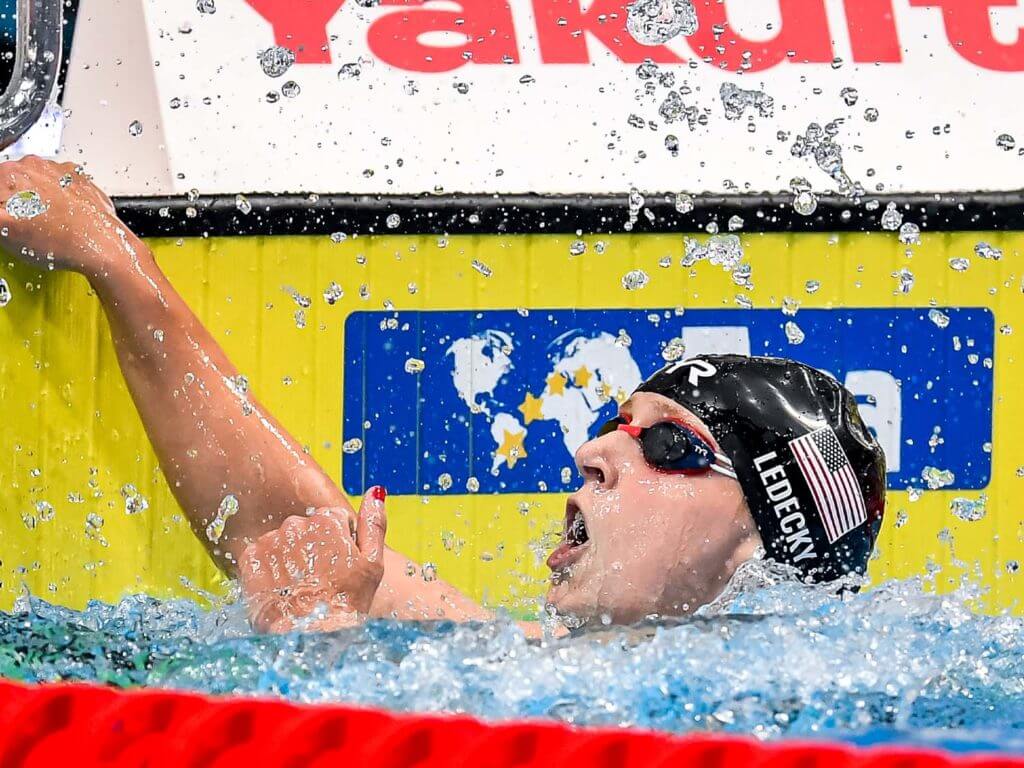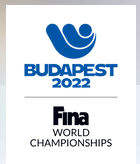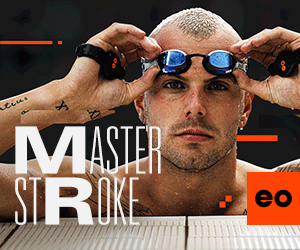Budapest Mirage? Assessing U.S. Dominance at World Championships

Editorial content for the 2022 FINA World Championships coverage is sponsored by eo SwimBETTER.
See full event coverage.
Swim faster... faster, with game-changing data insight into your technique. eolab.com #eoSwimBETTER

Budapest Mirage? Assessing U.S. Dominance at World Championships
Kieran Smith had his arms in the air before any other anchor swimmer had touched the wall. He motioned as if to say, “Bring it on,” and then he turned to his teammates for rousing high-fives. Finally, he took a seat on the lane line, raised his arms once again and slammed the water. Of the many American relay victories over the years at the World Championships, this particular triumph in the men’s 800 freestyle relay meant something extra. After all, the Americans were less than 11 months removed from finishing fourth in the event at the Tokyo Olympics, the first U.S. relay in any swimming event ever to finish lower than third at an Olympics.
Now, the Americans are back on top, with their first world title in the 800 free relay since 2013 and their first gold medal at a major international competition since 2016, when the team of Conor Dwyer, Townley Haas, Ryan Lochte and Michael Phelps raced for the Stars and Stripes. A strong performance in the 200 freestyle at the U.S. International Team Trials in April, where Smith, Drew Kibler and Carson Foster all swam in the 1:45-mid range, was a promising development, and in Budapest, those three plus Trenton Julian keyed a three-second, swagger-boosting victory.
This event marked the fourth relay gold medal for the U.S. this week, and the Americans finished with five relay golds overall after winning just two at last year’s Olympics. They topped their medal tally from last year’s Tokyo Olympics with two days of competition remaining, and they ended up with an enormous total: 45 medals, the most ever by one country at a World Championships, shattering the previous record of 38 from 2017. They finished with 17 gold medals overall.
“It was an incredible eight days with this team,” U.S. men’s team captain Ryan Murphy said. “I felt like we just kind of put our heads down, handled business, and we looked up at the end of the meet, and it was by at least one metric our most successful team ever, and I think that’s really special. That’s not one person. That’s not one performance. That’s the collective as a whole and that comes down to people executing session after session, and that’s really hard to do over an eight-day meet.”
However, it is crucial to remember the realities of this week’s competition: this was not a full-scale World Championships. Not by a long shot.
All throughout the meet, this storyline was unshakeable. For one reason or another, so many stars of the Tokyo Olympics never made it to Budapest, including Emma McKeon, Ariarne Titmus, Evgeny Rylov and Adam Peaty. Kaylee McKeown was a late scratch from the 100 backstroke, and Caeleb Dressel swam just two events and the prelims of a third before he was done for the week.
Of course, every swimmer and relay team that earned a medal this week deserves to be commended. They raced against the field present, and the results are legitimate. But we still must consider the what-if.
In the aforementioned men’s 800 free relay, the Americans’ time of 7:00.24 would have been quick enough to win Olympic silver last year, but it was more than a second-and-a-half behind the winning time of Great Britain. The British team is without Duncan Scott, who split 1:43.45 on the anchor leg of the Olympic quartet. The British won bronze in Budapest, but replace the slowest leg of that relay with another 1:43 for Scott, and the Brits likely have enough to sneak by the Americans.
How about the women’s 800 free relay? The U.S. women were at risk of missing the podium after a shaky 200 freestyle behind Katie Ledecky at April’s Trials, but they rallied to take gold Wednesday evening, largely fueled by a career-best performance from Ledecky and a stunning 1:54.60 anchor split from 17-year-old Bella Sims. Australia was 2.41 seconds behind to earn silver, but what would have happened if Titmus was part of that quartet? Last month, Titmus clocked in at 1:53.31 at the Australian Championships, the fastest time in the world this year. There’s a good chance her presence could have helped push the Aussies over the top.
The final event of the World Championships saw the U.S. women hold off Australia for gold in the 400 medley relay. The team of Regan Smith, Lilly King, Torri Huske and Claire Curzan all posted solid splits, nothing spectacular but enough to get the job done for a half-second victory over Australia. The Americans got a big advantage on Huske’s butterfly leg against Australia’s Brianna Throssell, but what if relay veteran McKeon is handling that leg like usual? It would have been much tougher for Huske to build a lead and give Curzan a shot against Aussie anchor Mollie O’Callaghan.
Yes, these are hypothetical situations. Yes, the Americans won world titles fair and square. And yes, all the relay wins signs of enormous progress in a short amount of time. But when the World Championships are not a true representation of the best the world has to offer, it’s important to properly contextualize these results, especially with the eyes of the swimming world already peering ahead to the Paris Olympics just two short years away.
The U.S. squad captured 12 individual golds this week, but only five of those were won against a full-strength field. Ledecky did not have to contend with Titmus in the 400 free. Murphy’s first individual world title in Thursday’s 200 backstroke came against a field lacking the suspended Rylov, Murphy’s nemesis in the event over the past five years. Huske delivered a stellar performance in the women’s 100 butterfly to win gold, but Olympic champion Maggie Mac Neil was absent. Take nothing away from these well-deserved gold medals, but understand the realities.
If we are to truly judge the best swimmers in the world for 2022, let’s wait. Let’s see what sort of times the missing Australian and European stars can produce at the Commonwealth Games or European Championships in just over one month’s time. Compare the results from everyone’s focus meet for the year to calculate supremacy. That will give a more accurate assessment for this year than simply zeroing in on Budapest.
It has been an extremely strong week of performances for the United States, and it has been particularly impressive to watch young swimmers like Foster, Huske, Alex Walsh and Katie Grimes take the next steps in their careers. This week’s breakout swimmers can, should and will use confidence derived from Budapest to build off in the leadup to the Paris Games. But let’s wait a month or two to let the full picture of world swimming for 2022 unfold.






There are always these scenarios. But in the end it’s who shows up and who wins that day – times don’t matter when you talk about winning. You can’t hypothetically come up with scenarios that are NEVER guaranteed !
So, they should give the medals back? smh
The big point to make here is that for the US this was the one and only major long course international meet. For Commonwealth and European countries they have a second bite at the cherry.
For Commonwealth countries particularly the Com games is the main event, particularly for Australia.
The timing of the games gives swimmers who had a break after the Olympics more time to reach a peak after re-starting their training. Witness Titus, McKeon, Chalmers and a host of other Australian swimmers including many who have taken the entire year off – the Campbell sisters, Alex Graham to name a few.
Maggie McNeil will only compete in individual event (plus relays) at the Com game
Not taking anything away from the US performance, but this has been a soft world championships.
The World Championships were fantastic. The times were fast. Great performances by veterans and youngsters from all over the world. Thrilling races. Historic and WR performances. Excited fans having fun along with the fans, and enjoying the all-time greats in attendance who swam fast. It was exactly what a world competition was meant to be. Those few who chose to stay home missed out, too bad for them. See you whenever…
It’s also worth noting that South Africa are focussing primarily on the Com Games as well a number of their stars were missing from the world championships.